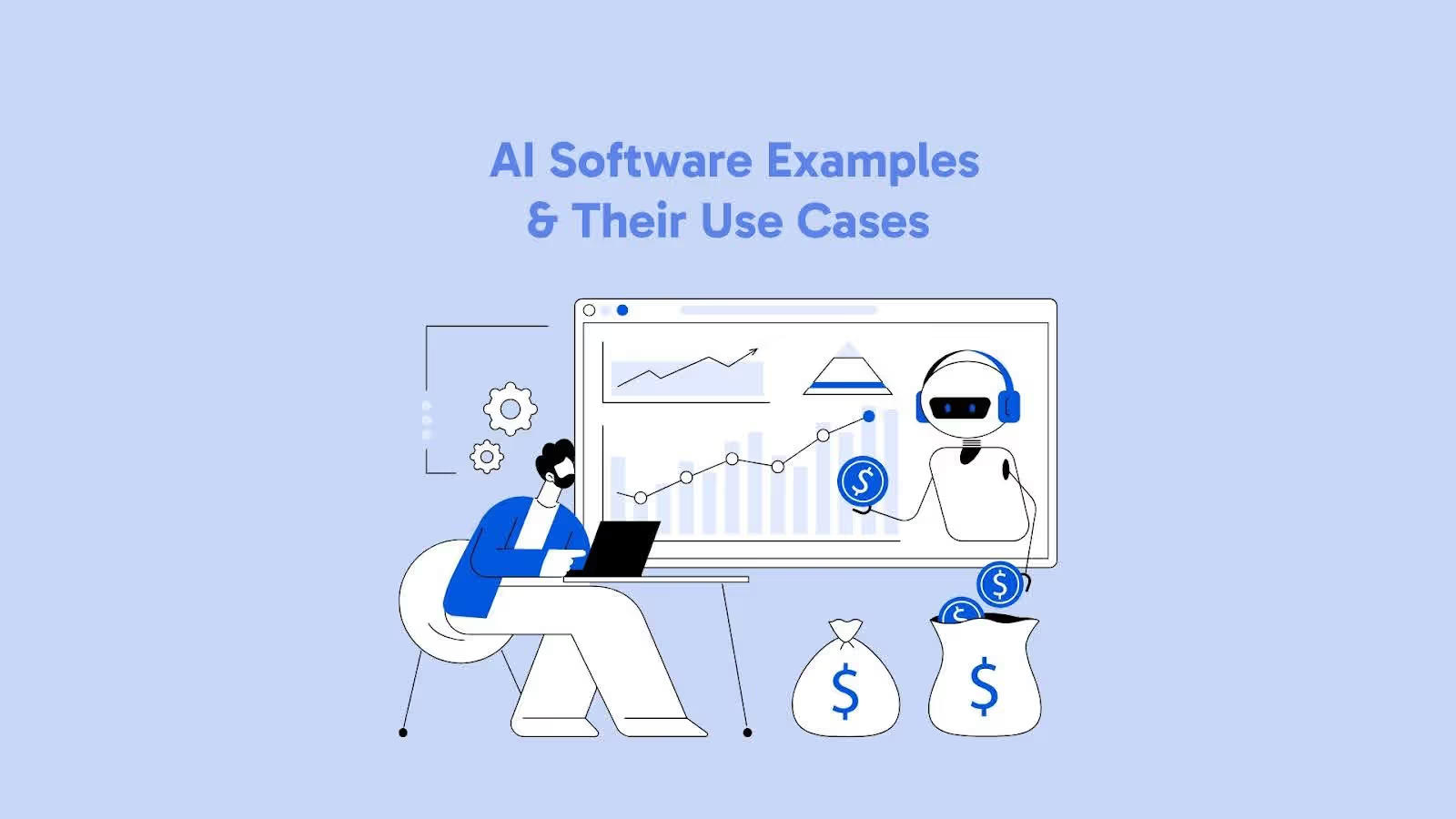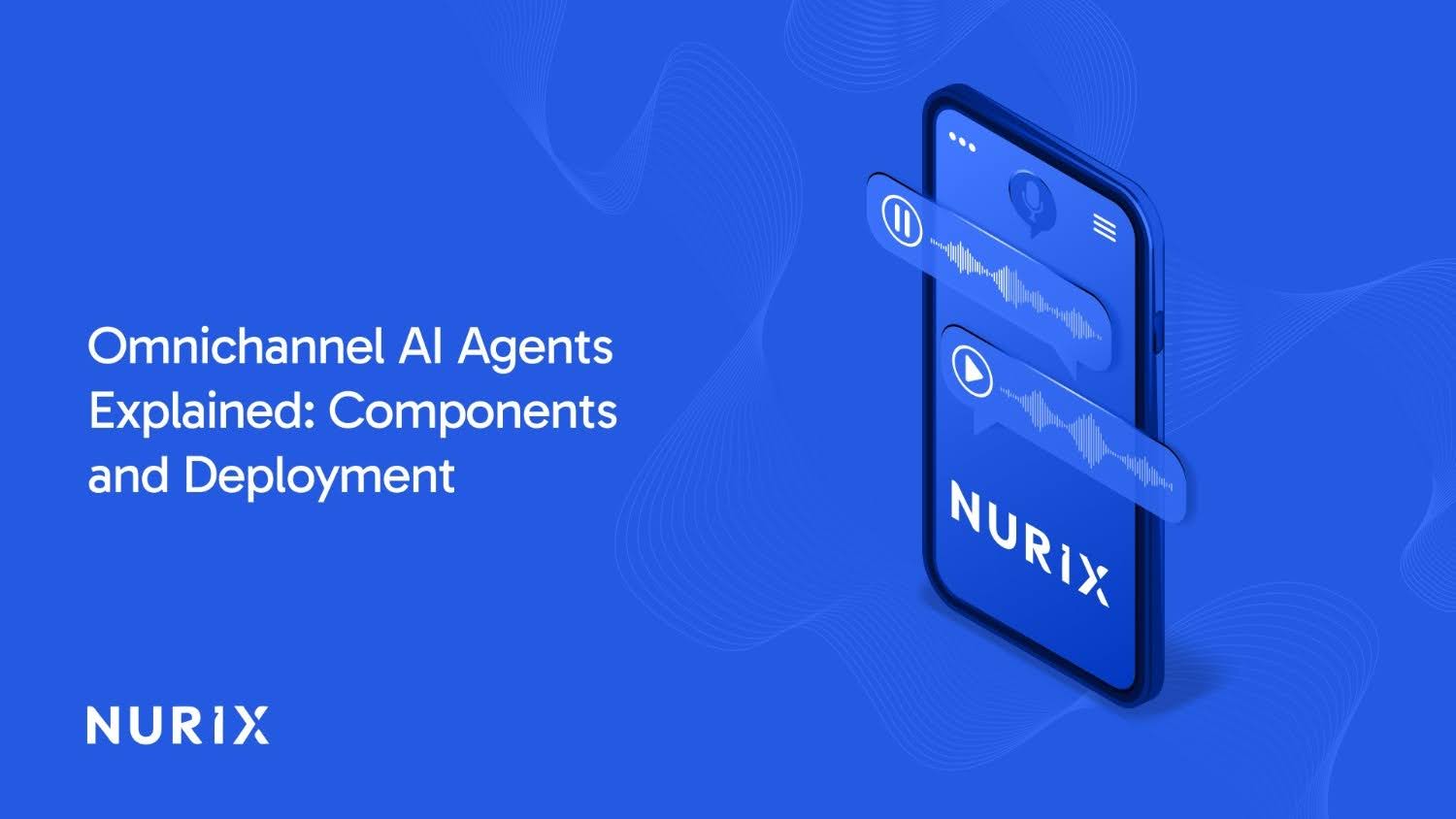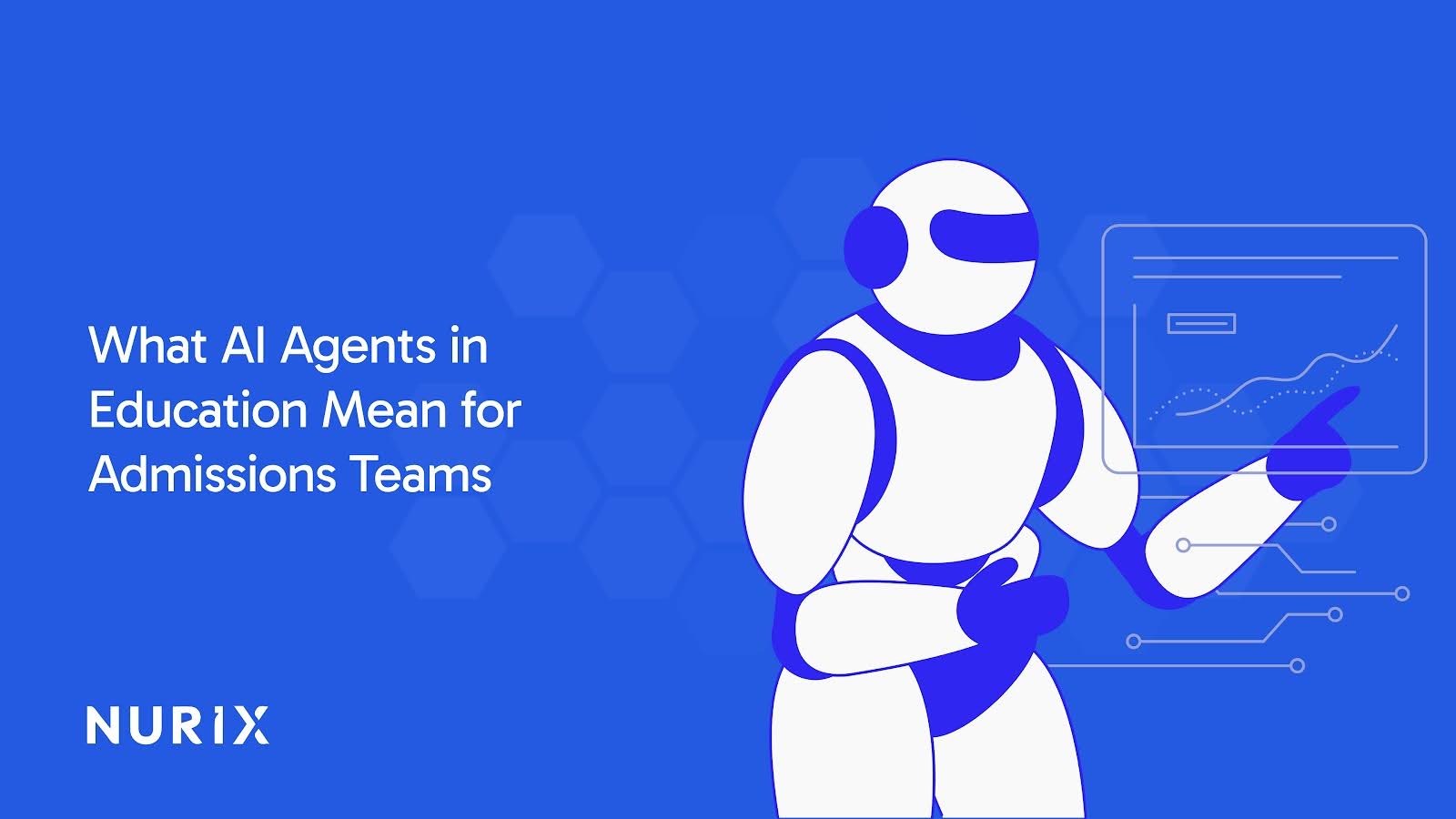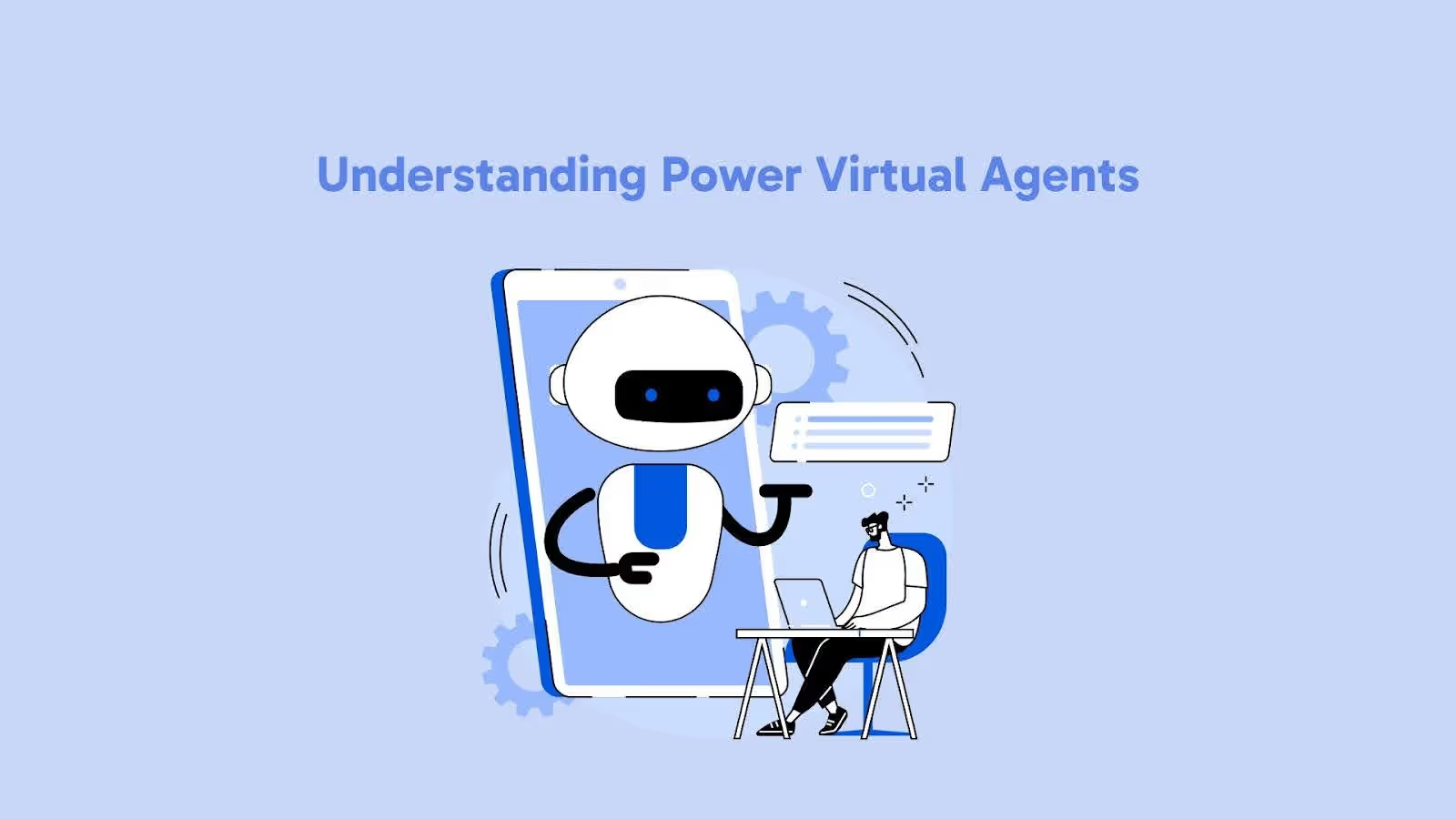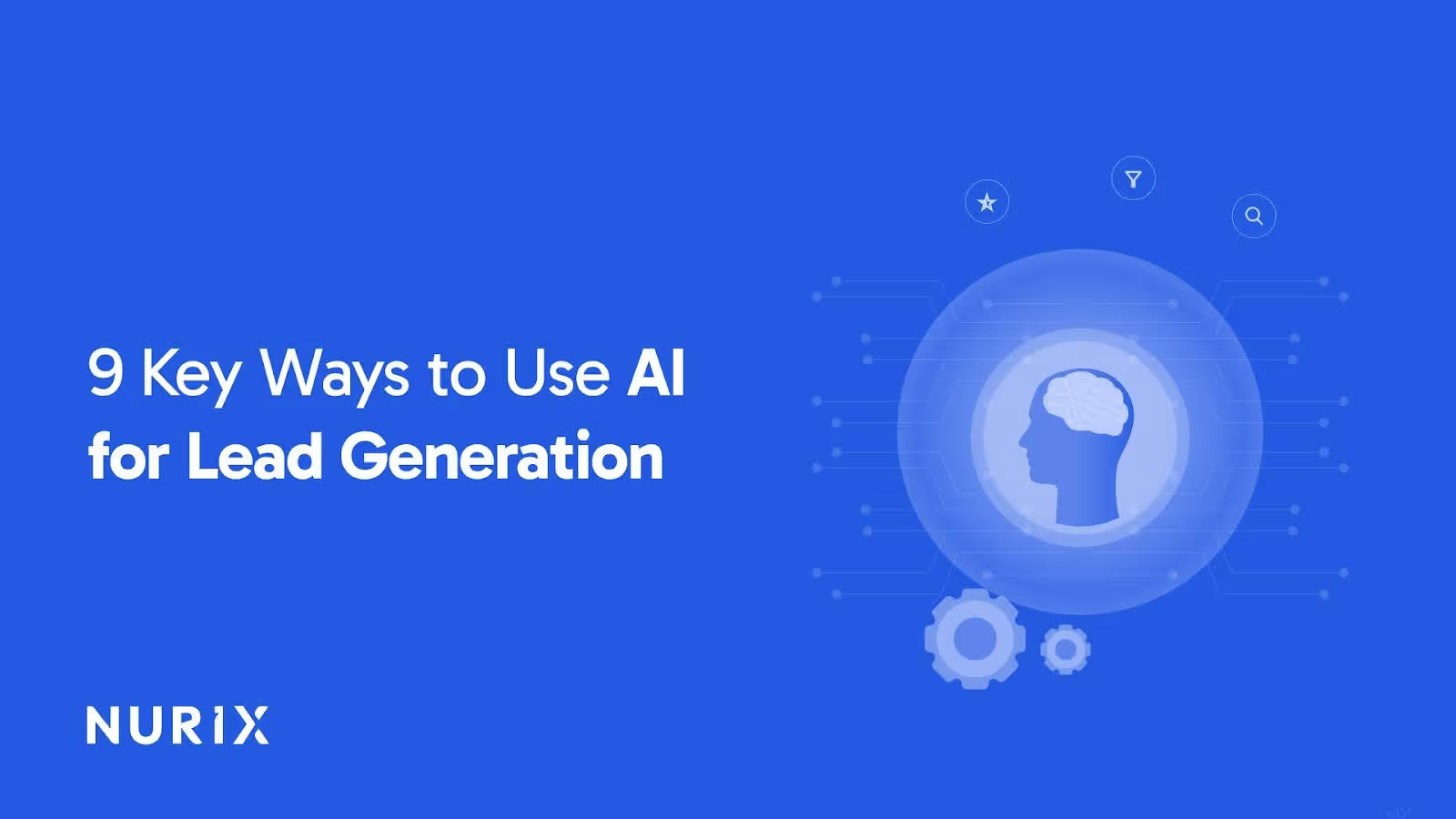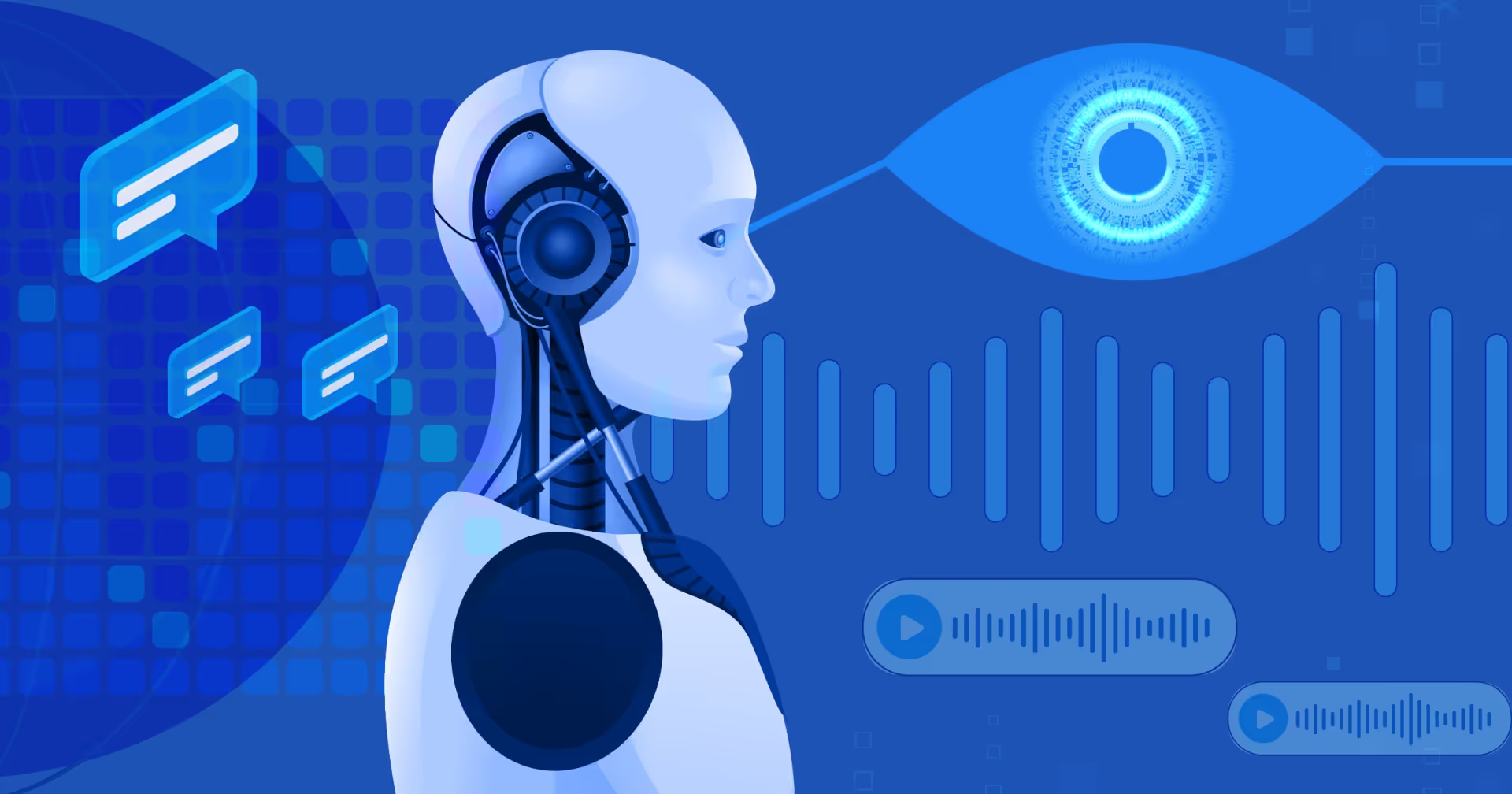As businesses face growing pressure to improve efficiency, reduce costs, and improve customer experiences, many still find themselves hindered by outdated systems and manual processes. AI software examples are helping companies overcome these obstacles by automating repetitive tasks, providing deeper insights from data, and improving decision-making. However, despite the potential, businesses often struggle with selecting AI tools that integrate smoothly with their existing systems and deliver real, measurable impact.
In this blog, we’ll explore AI software examples that are helping businesses solve common pain points, from automating customer support to improving operational efficiency and data-driven decision-making. These tools are making a significant difference, offering businesses the competitive edge they need to grow and adapt in an ever-evolving market.
What is AI Software?
In simple terms, AI software is programs that mimic human intelligence. Through machine learning (ML), natural language processing (NLP), and computer vision, AI for software
can solve complex problems, automate tasks, and derive insights from big data. Across industries, these tools streamline processes, improve customer experiences, and help make better decisions. AI software examples are becoming must-haves for businesses looking to be more efficient and smarter.
Why is AI Software Becoming So Popular?
AI for software is taking over the world, and it's no wonder why. From improving business to transforming economies, AI software examples are changing how we work, live, and grow. Let's get into the reasons why AI software is so popular:
1. Explosive Market Growth
The global Artificial Intelligence market is expected to grow from USD 86.9 billion in 2022 to USD 407.0 billion by 2027, at a CAGR of 36.2%, according to a new report. This rapid growth underscores the increasing importance of AI for businesses looking to stay competitive.
2. Big Economic Boost
AI isn't just good for business. It will also turbocharge the economy. By 2030, AI software will add a staggering $15.7 trillion to the global economy. In the US alone, AI will add 21% to the GDP. AI for software is becoming a significant driver of innovation and economic growth globally.
3. Rising Adoption Everywhere
The adoption of AI software is accelerating, with 34% of companies already implementing AI solutions. As labor shortages increase and businesses face pressure to optimize operations, AI is playing a key role in automating processes, enhancing customer service, and driving growth across various sectors like retail, healthcare, and finance.
4. Engaging Consumers Like Never Before
AI is transforming how businesses engage with consumers. Chatbots, for instance, are helping customer service departments reduce operational costs while delivering faster, more personalized responses. Additionally, AI-powered voice assistants are being used by millions to interact with devices daily, making AI a central part of consumer interactions.
5. Shaping the Job Market
The job market is evolving with AI software. Yes, it will displace around 85 million jobs by 2025, but here's the good news: AI software will create 97 million new roles, resulting in a net gain of millions of jobs. AI isn't taking jobs; it's creating new ones and transforming industries. As AI reshapes the job market, businesses must upskill their workforce.
As AI software gains popularity across various industries, its applications in customer support and sales are particularly noteworthy. One of the key areas where AI is making a significant impact is in enhancing customer interactions and streamlining sales processes. Let's explore some of the best AI software solutions available for these purposes.
Don’t miss out on this one: Explainable AI–The Next Disruption to the Fore
Best AI Software for Customer Support and Sales
AI software is pivotal in streamlining day-to-day business functions, from customer support to marketing. Here are the best AI software examples making an impact:
- Nurix AI: Improves customer support by using large language models, machine learning, and NLP. It automates tasks, provides real-time insights, and personalized interactions using generative AI, improving engagement and satisfaction. This approach streamlines operations, allowing for more efficient issue resolution and improved customer experiences.
Nurix AI provides custom solutions to streamline operations with features like automated workflows, sentiment analysis, and smart inbox integration. Get in touch to see how we can help enhance productivity and support.
- Zendesk: Known for its AI chatbots that handle mundane customer queries, Zendesk reduces the workload on human agents by automating routine tasks so that support teams can focus on complex and high-priority issues.
- Intercom: Intercom's AI tools use machine learning to optimize customer interactions by learning from past conversations. Its chatbots respond to users faster and personalize the customer support experience.
- Freshdesk: Freshdesk uses AI to prioritize support tickets so urgent issues get addressed quickly and intelligently. Streamlining ticket management helps support teams resolve critical issues on time and improve customer satisfaction.
- LivePerson: LivePerson adds AI to live chat with suggested responses based on past conversations. This tool improves response accuracy and efficiency, resulting in faster resolution and better customer experience.
- Drift: Drift's chatbots talk to customers instantly, reducing wait times and increasing user satisfaction. By automating the first interaction and handling mundane queries, they free up support staff to focus on complex customer issues.
Deals are closing faster with the best AI software examples like Nurix AI and Freshdesk. AI is getting smarter and better. Now, let's see how AI is changing healthcare with life-changing solutions.
Best AI Software Examples in Other Industries
AI for software is transforming businesses by automating tasks and improving customer interactions. From healthcare to e-commerce, AI software examples drive efficiency and innovation across industries.
1. Healthcare
- Mount Sinai Health System: Mount Sinai is using AI to predict patient readmissions by analyzing historical health data. The system helps the hospital allocate resources efficiently and improve patient care by identifying high-risk patients who may need more intensive monitoring.
- Exscientia: Exscientia is a company that uses AI to design drug candidates faster. Their AI platform has helped develop drugs that are now entering clinical trials, including a new treatment for COVID-19 that was fast-tracked for development with AI assistance.
2. Education
- Duolingo: Learning a new language is tough, but Duolingo makes it easier by using AI to adapt lessons to your proficiency level. Users have seen a significant spike in engagement, proving that learning can be fun and tailored just for you.
- Coursera's Adaptive Learning Platform: Coursera's AI adjusts the course material based on performance. This custom approach increased course completion significantly.
3. Banking and Finance
- PayPal's Fraud Detection System: AI is PayPal's secret weapon, catching fraudulent transactions in real time and preventing huge amounts in annual fraud.
- Chime: Chime uses AI-driven budgeting tools, helping users save more annually than traditional banking methods. It's like having a financial coach always by your side.
4. Retail and E-Commerce
- Stitch Fix: Stitch Fix uses AI to hand-pick clothes for customers, resulting in a 90% satisfaction rate. AI ensures fashion is more personalized and convenient.
- Walmart's Inventory Management System: Walmart's AI system predicts demand, resulting in a reduction in stockouts. This ensures shelves are stocked when customers need products the most.
5. Transportation
- Waymo's Self-Driving Cars: Waymo's AI-driven vehicles set new safety standards, with 85% reduction or 6.8 times lower crash rate. This is leading the way to a future of autonomous driving.
- Uber's Route Optimization Algorithm: Uber uses AI to help drivers reach passengers faster, reducing wait times. It's like having a super-smart GPS for better service.
6. Logistics and Transportation
- FedEx: FedEx uses AI to streamline package sorting and optimize delivery routes, reducing delivery times significantly. It's all about getting packages to customers faster and more efficiently.
- UPS: AI-powered algorithms at UPS save around 10 million gallons of fuel annually by optimizing delivery routes. That's the efficiency you can measure in millions.
7. Manufacturing
- Siemens: AI helps Siemens with predictive maintenance, reducing unplanned downtime. This means fewer factory breakdowns and smoother operations.
- Bosch: AI-driven robots at Bosch have sped up production, transforming assembly lines into faster, more intelligent, and more precise operations.
8. Energy and Utilities
- Shell: AI-powered predictive maintenance at Shell reduces equipment failure, cutting maintenance costs. This ensures continuous operations with fewer disruptions.
- Enel: Enel's AI-driven grid management increases energy efficiency, ensuring smoother operation and better customer service.
9. Hospitality
- Hilton Hotels: AI chatbots at Hilton handle guest inquiries, improving response times by 60% and improving guest satisfaction. It's like having a virtual concierge available 24/7.
- Marriott International: Marriott's AI-powered personalization engine creates tailored experiences for guests, increasing repeat bookings by 15%. Personal touches keep guests coming back.
10. Agriculture
- John Deere: John Deere's AI-powered precision agriculture tools have increased crop yields by up to 30%. Farmers are using AI to maximize harvests and improve productivity.
- IBM Watson Decision Platform for Agriculture: By combining weather data with crop analytics, IBM Watson helps farmers make smarter decisions, improving productivity. AI is like having a data-driven farming advisor to improve crop management.
11. Construction
- Project Management (ALICE): ALICE, an AI-driven project management tool, optimizes project schedules and resources, cutting project costs. AI ensures construction projects stay on track and within budget.
- Building Information Modelling (BIM): AI improves BIM systems by predicting project outcomes and improving design accuracy, making construction processes smoother and more efficient.
12. Entertainment and Media
- Script Analysis: AI tools in Hollywood analyze scripts to predict potential box office success, helping studios make smarter production decisions.
- Video Editing: Designs.ai is an online video editing platform that uses AI technology to improve efficiency.
Now that we've explored AI software examples and their diverse applications, let's look at how to implement AI successfully in your business.
How to Implement AI in Your Business
Integrating AI into your business can be transformative, but it requires the right strategy to maximize its benefits. Here's a simple guide to getting started:
- Define Your Goals: What problems can AI solve, whether in terms of efficiency, cost, or customer experience? Set clear KPIs to measure success, productivity, or service cost reduction.
- Check Your Readiness: Ensure your infrastructure (hardware, software, network) can support AI. You'll also need clean data and a team with the right skills. If you have gaps, consider training or hiring AI experts.
- Prepare Your Data: Gather relevant data and clean it up, remove duplicates, fill in gaps, and standardize formats. Good data is critical to good AI performance.
- Choose the Right AI Tools: Select the right AI technologies for your objectives in machine learning or natural language processing. No-code platforms make it easy for non-technical teams.
- Test and Deploy: Run pilot tests to ensure the functionality of your AI solution before going live. Once you've integrated AI into your workflows, monitor and adjust as needed.
By following these steps, businesses can unlock the full potential of AI software and drive growth through innovation. Next, let's explore the challenges companies face when implementing AI.
Here’s something else you might enjoy: The Future of Work: Integrating Human Intelligence with AI
Challenges of Implementing AI in Your Business
While AI for software is fantastic, it has its challenges. Knowing these challenges will help you navigate the AI implementation process better. Here are some of the challenges businesses face when implementing AI:
- High Initial Costs: AI solutions require a significant upfront investment, especially in infrastructure, software, and talent. Small businesses can't afford these costs without a short-term ROI.
- Data Quality Issues: AI needs good data, but many businesses have incomplete, inconsistent, or inaccurate data. Without clean, structured data, AI models will not perform well and will give poor results.
- Skill Gaps: AI technology requires specific skills. Businesses often struggle to hire or upskill staff to manage and maintain AI systems, and a shortage of AI professionals will slow down implementation.
- Integration with Existing Systems: Integrating AI into existing systems like CRM systems is complex. Getting AI to work with your current workflows and software often requires custom development and ongoing tweaks.
- Ethical and Privacy Concerns: AI models process large amounts of personal data, which raises privacy and ethical concerns. Businesses need to ensure they comply with data protection regulations and do not bias their AI models.
Addressing challenges like data quality and skill gaps will ensure successful AI integration and long-term business success.
Conclusion
AI software is increasingly becoming an essential tool for businesses aiming to innovate and stay competitive. Beyond improving efficiency, AI is bringing in new capabilities in predictive analytics, enabling businesses to anticipate market shifts, and hyper-personalization, which drives deeper customer engagement.
As AI continues to advance, its ability to adapt to specific industry needs will only increase, providing businesses with more targeted solutions. The challenge now is ensuring these tools are integrated thoughtfully to maximize impact, making AI a crucial element in shaping future business success.
Are you tired of dealing with the same old customer support issues? Nurix AI has you covered. It learns from every interaction, so your customers get faster, more personalized help without the headaches.
Do you want to see how it can make your life easier and make your customers happier? Let's chat and get you set up!
FAQs About Top AI Software Examples and Their Use Cases
1. How do AI software examples streamline customer support?
AI software examples improve customer interactions by automating responses, analyzing sentiment, and providing real-time assistance, reducing response times.
2. What are some AI software examples that help with financial forecasting?
AI software examples analyze historical data, detect spending patterns, and generate predictive insights to assist businesses in making informed financial decisions.
3. How do AI software examples improve content creation for SMBs?
AI software examples assist in generating high-quality blog posts, marketing copy, and social media content while ensuring brand consistency and audience engagement.
4. Can AI software examples help with workflow automation?
AI software examples eliminate repetitive tasks, optimize scheduling, and integrate multiple business tools to improve efficiency and reduce manual workload.
5. How do AI software examples strengthen cybersecurity?
AI software examples monitor network activity, detect anomalies, and predict potential security threats to protect sensitive business data from cyberattacks.

